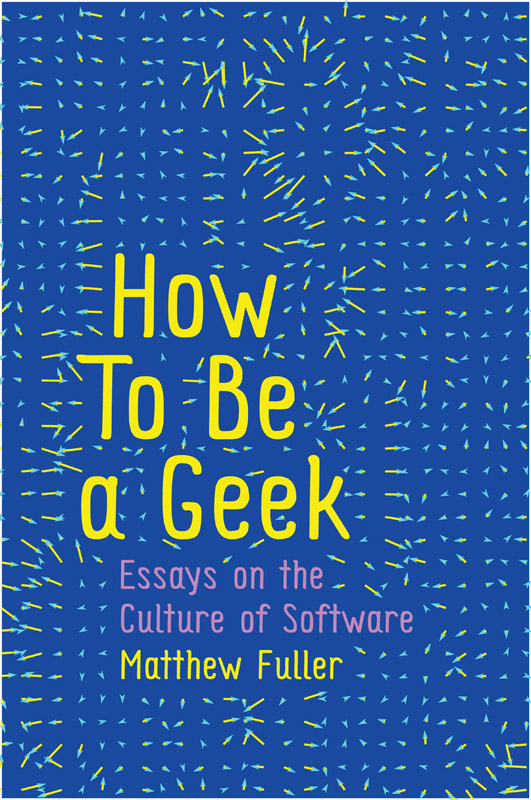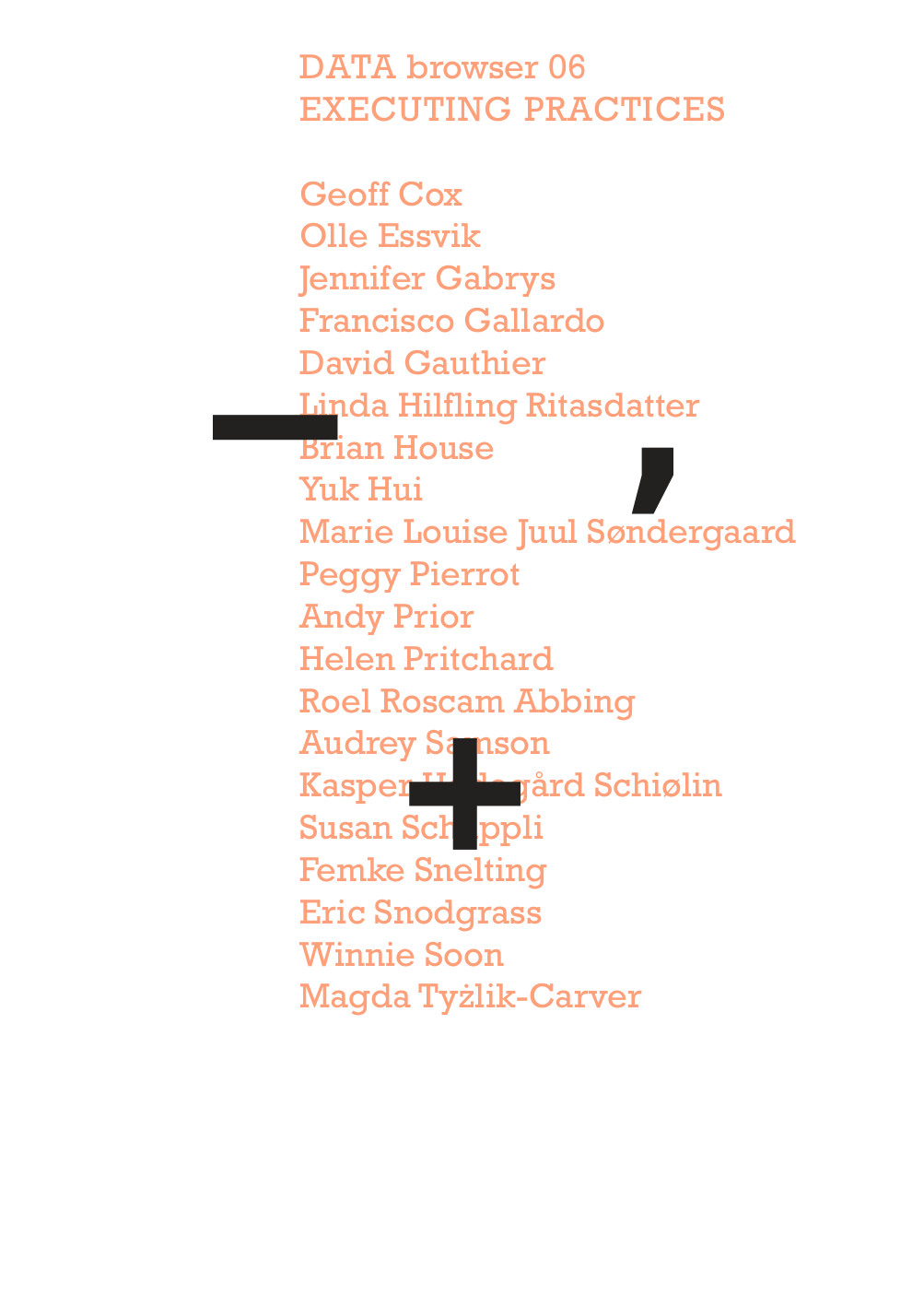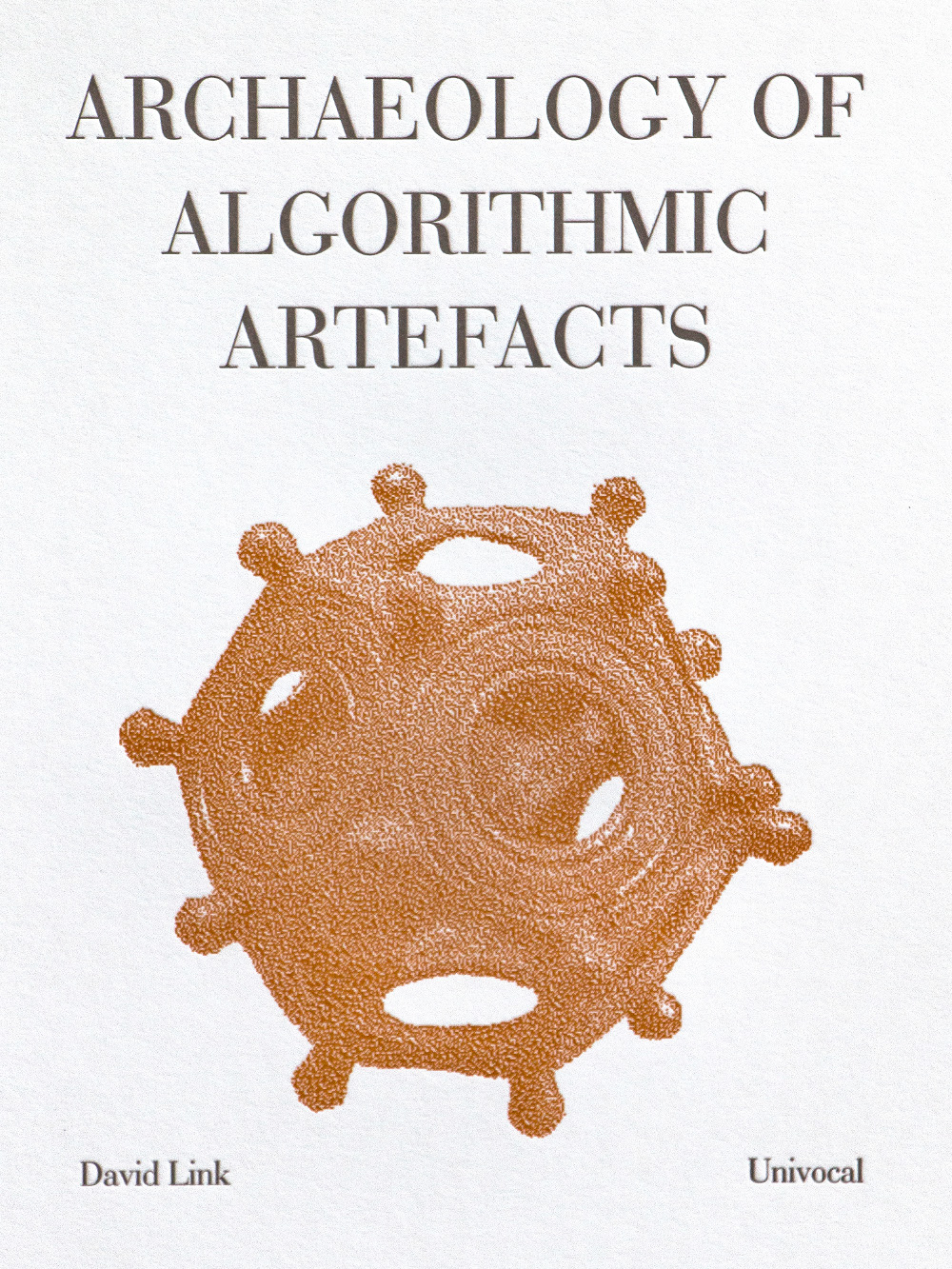Matthew Fuller: How To Be a Geek: Essays on the Culture of Software (2017)
Filed under book | Tags: · aesthetics, algorithm, computation, computing, database, information, language, media, media theory, networks, programming, software, software studies, theory

“Computer software and its structures, devices and processes are woven into our everyday life. Their significance is not just technical: the algorithms, programming languages, abstractions and metadata that millions of people rely on every day have far-reaching implications for the way we understand the underlying dynamics of contemporary societies.
In this innovative new book, software studies theorist Matthew Fuller examines how the introduction and expansion of computational systems into areas ranging from urban planning and state surveillance to games and voting systems are transforming our understanding of politics, culture and aesthetics in the twenty-first century. Combining historical insight and a deep understanding of the technology powering modern software systems with a powerful critical perspective, this book opens up new ways of understanding the fundamental infrastructures of contemporary life, economies, entertainment and warfare.
In so doing Fuller shows that everyone must learn ‘how to be a geek’, as the seemingly opaque processes and structures of modern computer and software technology have a significance that no-one can afford to ignore. This powerful and engaging book will be of interest to everyone interested in a critical understanding of the political and cultural ramifications of digital media and computing in the modern world.”
Publisher Polity, 2017
ISBN 9781509517152, 1509517154
x+233 pages
Helen Pritchard, Eric Snodgrass, Magda Tyźlik-Carver (eds.): Executing Practices (2017–)
Filed under book | Tags: · algorithm, execution, politics, software, software studies, time

“This collection brings together artists, curators, programmers, theorists and heavy internet browsers whose practices make critical intervention into the broad concept of execution. It draws attention to their political strategies, asking: who and what is involved with those practices, and for whom or what are these practices performed, and how? From the contestable politics of emoji modifier mechanisms and micro-temporalities of computational processes to genomic exploitation and the curating of digital content, the chapters account for gendered, racialised, spatial, violent, erotic, artistic and other embedded forms of execution. Together they highlight a range of ways in which execution emerges and how it participates within networked forms of liveliness.”
Contributors: Roel Roscam Abbing, Geoff Cox, Olle Esvik, Jennifer Gabrys, Franciso Gallardo, David Gauthier, Linda Hilfling Ritasdatter, Brian House, Yuk Hui, Marie Louise Juul Søndergaard, Peggy Pierrot, Andy Prior, Helen Pritchard, Audrey Samson, Kasper Hedegård Shiølin, Susan Schuppli, Femke Snelting, Eric Snodgrass, Winnie Soon, Magda Tyżlik-Carver.
Publisher Autonomedia, New York, 2017
Data Browser series, 6
Creative Commons BY-NC-SA 3.0 Unported License
ISBN 9781570273216
279 pages
New version
Publisher Open Humanities Press, Nov 2018
Data Browser series, 6
Creative Commons BY-SA 4.0 Unported License
ISBN 9781785420566
310 pages
Review: Monika Szűcsová (Computational Culture, 2021).
Book series
Publisher (2018)
PDF, PDF (2017, 24 MB, updated on 2017-4-10)
PDF, PDF (2018, 12 MB, added on 2018-11-28)
EPUB, EPUB (2018, 21 MB, added on 2018-11-28)
David Link: Archaeology of Algorithmic Artefacts (2016)
Filed under book | Tags: · algorithm, apparatus, computing, history of computing, machine, mathematics, media archeology, theory

“Unearthing the cumulus of transient technologies that underlie the fabric of contemporary society
As historical processes increasingly become steeped in technology, it becomes more and more necessary for a discipline to emerge that is capable of comprehending these materialities beyond their shelf life to better understand the fields they inundate such as science, art, and warfare. This effort is further compromised by the inherent complexity and complete arbitrariness of technical languages – especially when they are algorithmic – along with the rapid pace in which they become obsolete, unintelligible, or simply forgotten. The Turing Machine plays a central role in the Archaeology of Algorithmic Artefacts, wherein the gradual developments of the individual components encompassed by this complex technology are placed within the context of engineering sciences and the history of inventions. This genealogy also traces the origin of the computer in disciplines such as mathematics, meta-mathematics, combinatorics, cryptology, philosophy, and physics. The investigations reveal that the history of apparatuses that process signs is in no way limited, as one might think, to the second half of the 20th century, rather it is possible that they existed at all times and in all cultures.”
Publisher Univocal Publishing, Minneapolis, 2016
ISBN 9781937561048, 1937561046
207 pages
Review: Lisa Gitelman (Computational Culture, 2017).
PDF (18 MB)
Comments (3)
